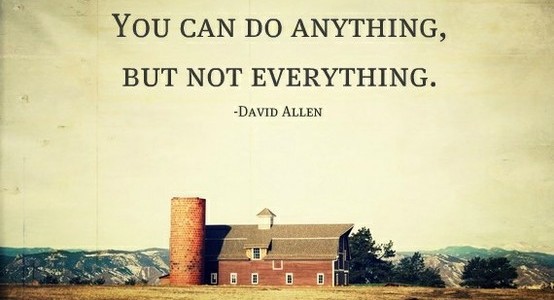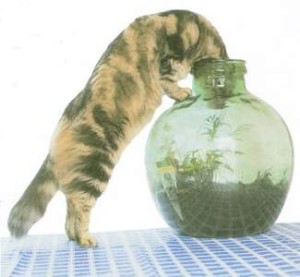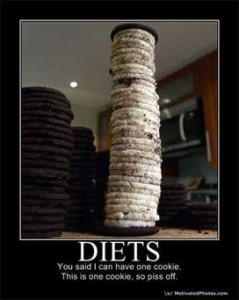
The 8, no wait, 9 Habits of Highly Effective Greenies
I called my first presentation ever about sustainability “The Eight Habits of Highly Effective Green People”, riffing on Stephen Covey’s “7 Habits”. In developing that talk, which I intended to reassure, inspire, and give people a firm push toward greener design, I came to the conviction that there truly are several core habits that help individuals and teams achieve more sustainable design. I find that these habits, now nine in my list, are key in nearly everything I undertake, be it policy work, materials selection, spacial order, or teaching staff that the new printers are an ally in their daily work.
In the blogging world, they tell you that lists are enticing and accessible as everyone wants to know what the 6 or 8 or 15 clues are to success, wealth, happiness…a clean house. Consider yourself enticed!
Below I will define and describe in brief the nine habits of successful leaders in triple bottom line focused work. It is my hope that you will start to see, in your daily work, the strength and completeness these habits afford you, and that you may seek to improve a skill that is slight or share with others a habit that is second nature to you.
The habits as I arrange them in my own mind set nicely into three groupings. The first is Attitude or personality traits, the second is Expertise which refers to learned information and experiences, and the third is Interdependence as related to leadership and team dynamics.
Our first category is about the personal Attitude we carry internally.
Our first category is about the Attitude we carry internally. Everyone comes to the table with their own perspective and style of interaction and delivery. Successful habits for we greenies that relate to attitude include being bold, curious, and committed. You’ve read those words and likely already formulated some sort of first impression, even in just one sentence. This is good as each circumstance needs us to pre-judge in order to function and to begin work. However, we need to refine our impressions based on new information AND we must have the ability to seek that information.
Be Bold – make suggestions, bring up ideas, and set fear aside when confronted with new knowledge or new opportunities. We cannot do things as we have always done them, which means we must change and seek “new life and new civilizations and boldly go where no man has gone before”. Maintain respect while reaching out, especially as boldness is sometimes mistakenly treated as arrogance.
Be curious – it is not enough to send a list of questions to your owner and your team, or have all participants fill in a survey. You must truly want to know what makes them happy, what possibilities they see, and what limits they are facing. Curiosity will help you to help them know what they will benefit from, and what stated desire is merely something that looks good in a glossy magazine. Even more importantly, it will help you all to discover what is fueling the goals and help you see other possible ways to attain them.
Be committed – in any endeavor that is changing the “norm” you will have days that seem overwhelming and full of effort. Keep the long-view in mind. In a project, this means setting project goals and prioritizing them as well as making sure the whole team understands and agrees to those goals. Every decision will be easier with this clarity. I don’t say “easy” but certainly easier. The same goes for your personal career, or the future of your company. What is the vision and what are your goals – does this project keep you on the path to achievement or not? On top of all this, being committed means you don’t have to spend time every day or every decision re-deciding what is important. If your project goal is to get to proven zero net energy, you will then be free and open to explore every opportunity to do so.
Our second broad category is Expertise, which is about being knowledgeable, innovative, and realistic.
Our second broad category is Expertise, which is about being knowledgeable, innovative and realistic. It’s about the experiences you’ve accumulated and built upon. This, of course, will change as your career progresses and as the world around us pushes educational needs in different directions. I never thought I would be so knowledgeable about triple bottom line or policy and government when I began my career as an architect.
Be knowledgeable – easy to say, right? It’s not just about book knowledge, but about wisdom and application. This is why the habits are all so important; the curiosity that we’ve already mentioned will help you to become knowledgeable and to seek understanding of other’s abilities and expertise. No one can know it all, so above all, be knowledgeable about your limits and how to subsidize your own work with the inputs of others.
Be innovative – this is a time to ask “why” and “how” an awful lot. I know in leading projects we need to maintain the schedule and not get derailed, but it is imperative to not rest on the laurels of our past knowledge. One of the best residential design stories comes from Sara Susanka (of Not So Big House fame) who talks about meeting her client’s need for a library by making a generous stair landing a library and letting the books be the décor for the space. A separate room was not needed, and the spirit of the “want” was achieved within the budget and size constraints.
Be realistic – are you squirming because I just told you that innovation is important and now I am somehow contradicting this with a reality check? Think again. You cannot be innovative without the grounding and the drive of reality. Check out the story above – the innovation came because of the reality of budget constraints. Work exceptionally creatively with what you have.
The last and most important grouping is the Interdependence piece. There is no building project completed in solitude…
The last and most important grouping is the Interdependence piece. There is no building project completed in solitude and it is way past time to dispel the myth of the stark-itect that leads the team with his sole vision and arrogance. It is a harmful myth. Interdependence is a strength and it entails being inclusive, ready and celebratory.
Be inclusive – of ideas, people, ecological systems, community systems, attitudes, and preconceptions. Approach each design goal knowing that systems work together – we can no longer design a building, ignoring ecological systems, and then “hand it over the wall” to the engineer to heat and cool, and then over the other wall to the interior designer to make pretty and comfortable. Be inclusive of the abilities of the people you are working with as well – a structural engineer should have insights into thermal bridging and the sustainability of structural systems choices and more.
Be ready –again, the world is changing fast. Slightly more than 20 years ago the USGBC didn’t exist, there were no “rated” green buildings 15 years ago, and now the assessments are moving to performance reporting. And the changes are speeding up. Codes are moving from prescriptive to performance and we, on the design side, are interacting with more people, more regulations and more constraints all the time. We have to make the best decisions we can for the project at hand, knowing the info may change tomorrow. Be ready by seeking to future-proof, but also accept that with these fast changes, you cannot berate yourself in hindsight for knowledge that truly did not exist.
Finally, be celebratory – this is something we all neglect in nearly every portion of our lives. Celebrate. This is not about marking time, as a birthday party or work anniversary, but about understanding the effort in a project and making sure to write a story or a case study about the successful whole or particularly noteworthy pieces. It is about thanking your team, holding their skills up for appreciation, raising a glass when you complete the work for a tough deadline, and loving the moment we are in. We need to love the effort in order to do this incredibly hard work well.
We need to love the effort in order to do this incredibly hard work well.
As for me, I love this moment I am in. I have written a draft of the eight, no, nine habits, being ready as my experiences have changed my perspective, reaching out to other experts to fill in my knowledge gaps, and celebrating the moment when the draft is complete and I can move to edit mode. I have completed the hard lifting and I am committed to my blog goals of being brief, clear and engaging. I am realistic that my passion for greening my work and the world will shine through. Maybe there is another tenet that underlies all of the habits…trust in your passion, and do the work at hand.
Thanks, and be greener, every day!
Jodi
4 Others like this post, how about you? (no login required)



Pingback: Let’s be “Pozzotive”. | 2bgreener
Well said!
Thanks, Kaz!
I greatly appreciate your reading the posts and commenting. I welcome any suggestions or thoughts for discussion. The toughest part about blogging is not the writing, much to my surprise, but the fostering of an audience.